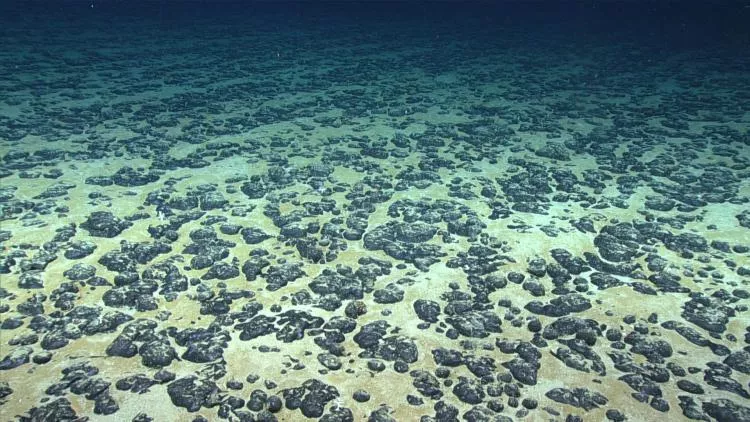Oxygen being produced in deep ocean
Recent discoveries reveal deep-sea nodules as unexpected sources of oxygen, reshaping our understanding of marine ecosystems. The findings highlight the potential impact of deep-sea mining on these vital oxygen sources.
In a surprising turn of events, scientists have uncovered that deep-sea nodules are significant sources of oxygen. This discovery challenges previous assumptions about the deep ocean's oxygen levels and holds profound implications for marine ecosystems.
Unexpected Findings
The discovery resulted from a collaborative research effort. It revealed that manganese nodules found on the ocean floor release oxygen. This was previously unknown, as the deep ocean was thought to be relatively oxygen-poor compared to surface waters. Lead researcher Dr. Emily Roberts from the Oceanographic Institute commented, "This finding is groundbreaking. It changes our fundamental understanding of deep-sea chemistry and biology."
The presence of oxygen-producing nodules has significant implications for the burgeoning deep-sea mining industry. Mining these nodules could disrupt the delicate balance of deep-sea ecosystems.
Environmental scientist Dr James Whitmore warned, "The extraction of these nodules could deplete oxygen levels in the deep ocean, affecting marine life that relies on these oxygen pockets." This adds a new layer of complexity to the debate on deep-sea mining's environmental impact.
Ecosystem Resilience
The presence of oxygen in the deep ocean enhances the resilience of marine ecosystems, providing habitats for various organisms. These nodules contribute to a previously unrecognised oxygen cycle in the deep sea. "Understanding this cycle is crucial for marine conservation efforts," noted marine biologist Dr. Laura Simmons. The discovery opens new avenues for research into how these ecosystems function and their ability to adapt to environmental changes.
Implications
Further studies are necessary to fully understand the implications of this discovery. Scientists aim to investigate the extent of oxygen production by these nodules and their distribution across the ocean floor. "This is just the beginning," said Dr. Roberts. "We need to explore how widespread this phenomenon is and what it means for global ocean health." The findings could lead to more sustainable practices in marine resource management and conservation strategies.





























